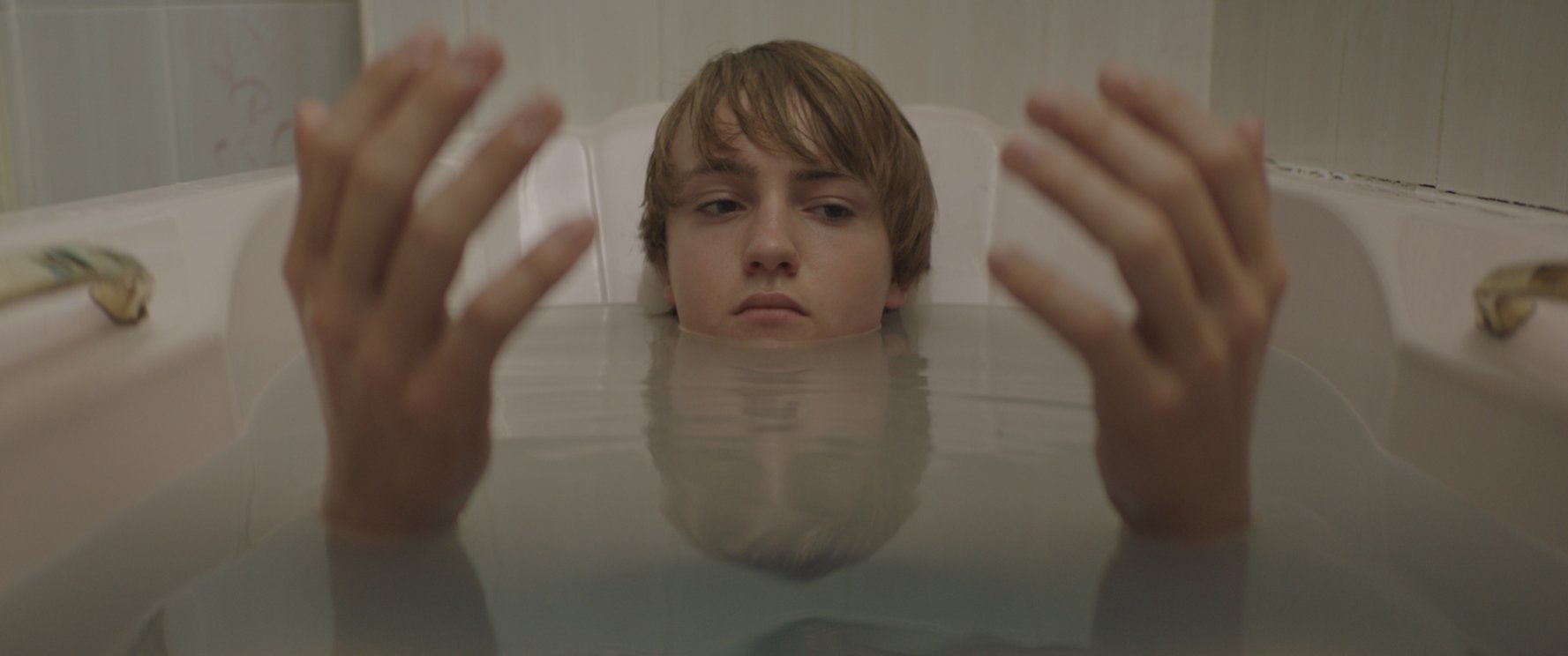Film Review: ‘The Devil Outside’
By Guy Lodge
LOS ANGELES (Variety.com) – There’s been repeated talk in Brexit-era Britain — much of it grimly reactionary — of long-silenced, tradition-bound communities raising their voices against a so-called “liberal elite,” yet rarely has it centered on matters of faith: Secularism has long been accepted as the standard in a society less steered by Christian fervor than the United States. Yet if Andrew Hulme’s agitated, symbol-riddled drama “The Devil Outside” is to be believed, that’s not a state of affairs with which the Church’s most extreme followers are content: A dark streak of socio-political warning cuts through this solemn coming-of-age story, in which an ultra-sheltered adolescent boy begins to assert an religious identity separate from that of his obsessively Bible-bashing mother, though the film stops cautiously short of a more decisive reckoning.
Intelligent and emotionally full-blooded, Hulme’s sophomore feature makes no claims for even-handedness. Inspired by the director’s own experience of growing up in a devoutly Christian household, “The Devil Outside” takes a firmly skeptical stance on organized religion, though it does present a Church itself split between temperate tradition and more radical born-again theology. (It would make a fine, rigorous double bill with Daniel Kokotajlo’s upcoming, incendiary Jehovah’s Witness drama “Apostasy.”) Faith evidently weighs heavily on Hulme’s mind: “The Devil Outside” indirectly extends certainly extends certain lines of inquiry from his 2013 debut “Snow in Paradise,” which examined a white London gangster’s troubled conversion to Islam. Despite a high-profile Un Certain Regard premiere at Cannes, that film never found distribution to match its topical genre twist; bowing more discreetly in Edinburgh, Hulme’s follow-up is unlikely to vault him much further above the radar, though it makes concrete his distinct directorial style and point of view.
If Hulme’s perspective is clear, his protagonist’s is far harder to pin down: Now 13 years old, Robert (grave-faced newcomer Noah Carson) is a timid, introverted only child whose natural bent toward fanciful self-delusion has gone unchecked by his God-fearing parents, who have home-schooled him away from his peers and deem him too young to watch television. When he is finally sent to high school, he has no understanding of sex, science or the outside world — only the Bible studies his mother (Keeley Forsyth) and, to a lesser extent, his mousy father (Alex Lowe) have drummed into him, and angrily stress when he comes home with newfangled ideas of evolution. Peer bullying inevitably ensues, though he finds an unlikely ally (and conduit into 21st-century youth), in Marcus (the impressive Daniel Frogson, bringing a stern affair its surest streaks of humor), a crude-minded, defiantly atheistic boy unwillingly dragged into Robert’s church group.
A sinister influence at the opposite end of the scale, meanwhile, is David (Mark Stobbart), an unnervingly charismatic lay preacher whose unorthodox brand of fire and brimstone — calling on parishioners to vocally protest what he declares a “godless country” — divides the congregation, but enraptures Robert’s mother. Soon enough, David’s severe judgment and comfort-free counsel have pervaded the home sphere, leaving Robert, who has never been encouraged to question anything, unsure of whom or what to believe. A traumatic sighting of a dead body in the local woods leaves the increasingly hormone-raddled boy convinced he’s had a vision of Jesus, though hardly a benevolent or faith-enhancing one.
An accomplished editor responsible for the subtle escalation of tension in Bart Layton’s “The Imposter” and Anton Corbijn’s “The American,” Hulme assumes cutting duty here too. With a strong assist from Ludovic Lasserre’s nervous, chattering sound design, he builds his low-key scenario to a fevered head of sound and fury, reflecting the chaos in Robert’s head — but without quite plunging, as proceedings seem consistently on the verge of doing, into a realm of overt psychological horror.
Naturalism isn’t quite the order of the day here: Forsyth and Stobbart, in particular, perform with a kind of possessed intensity that is aptly not quite of this earth, destabilizing whatever tenuous sense of the real world that the hapless child has to hold onto. As in “Snow in Paradise,” cinematographer Mark Wolf favors murky floods of shadow and sudden, stylized shafts of light to mirror the protagonist’s addled, erratic state of mind. Yet any viewers hoping for the light to emerge victorious in this visual battle will be flummoxed by the film’s oblique, slightly rushed finale: There’s no closure for Robert and whatever demons plague him, but this angry, intriguing film suggests he might, at least for the time being, be safer in the gray.

